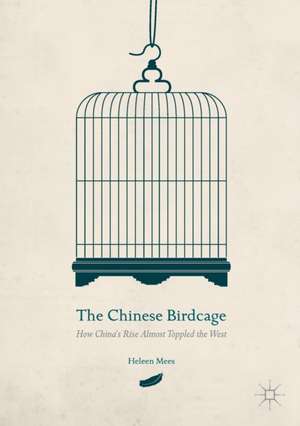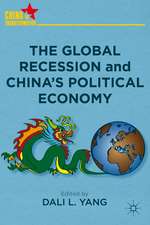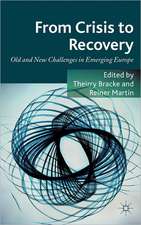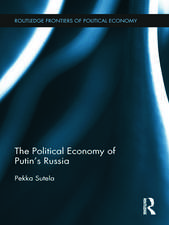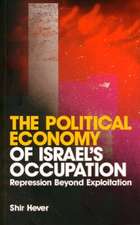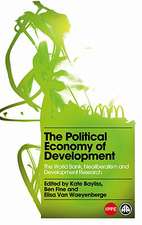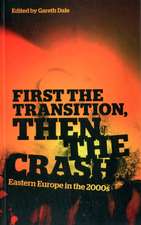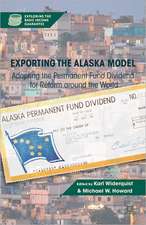The Chinese Birdcage: How China's Rise Almost Toppled the West
Autor Heleen Meesen Limba Engleză Paperback – 10 oct 2016
Preț: 270.94 lei
Nou
Puncte Express: 406
Preț estimativ în valută:
51.84€ • 54.13$ • 42.91£
51.84€ • 54.13$ • 42.91£
Carte disponibilă
Livrare economică 14-28 martie
Preluare comenzi: 021 569.72.76
Specificații
ISBN-13: 9781137588883
ISBN-10: 1137588888
Pagini: 228
Ilustrații: XVI, 197 p. 5 illus.
Dimensiuni: 148 x 210 x 17 mm
Greutate: 0.26 kg
Ediția:1st ed. 2016
Editura: Palgrave Macmillan US
Colecția Palgrave Macmillan
Locul publicării:New York, United States
ISBN-10: 1137588888
Pagini: 228
Ilustrații: XVI, 197 p. 5 illus.
Dimensiuni: 148 x 210 x 17 mm
Greutate: 0.26 kg
Ediția:1st ed. 2016
Editura: Palgrave Macmillan US
Colecția Palgrave Macmillan
Locul publicării:New York, United States
Cuprins
1 The Chinese Birdcage.- 2 Western Triumphalism.- 3 China as the World's Factory.- 4 Housing Bubbles across the Western Hemisphere.- 5 The Global Financial Crisis.- 6 The Economic Fallout.- 7 Unlimited Supplies of Labor.- 8 China's Economic Development.- 9 Global Imbalances and Corporate Cash Piles.- 10 The Capitalist Surplus and the Shortfall in Demand.- 11 Piketty Reconsidered.- 12 What Lies Ahead?.
Notă biografică
Heleen Mees was Adjunct Associate Professor at New York University's Wagner Graduate School of Public Policy. She is a columnist for the Dutch daily De Volkskrant and she writes opinion articles for various international publications including Foreign Policy, The Financial Times, Project Syndicate, and NRC Handelsblad.
Textul de pe ultima copertă
This book vividly describes how China’s rise in the early 2000s led to rising profits and declining labor income everywhere, ultimately resulting in the global financial crisis. Under Deng Xiaoping’s policy of ‘reform and opening up’ in the 1980s, China quickly became the world’s factory floor...but powerful political leaders envisioned a world in which the market economy would be trapped within the confines of a planned economy. With China’s admission into the World Trade Organization in 2001, almost a billion people joined the global workforce, driving down the real wages of blue- and white-collar workers in the US and Europe while also lowering interest rates, which fueled housing bubbles and destabilized the financial sector. This book explores China’s significant influence on western economies by focusing on the links between the labor market, corporate profits, and interest rates, using Arthur Lewis's framework for economic growth with unlimited supplies of labor to argue that by2010 the world economy – and political situations – had been set back almost one hundred years.
Caracteristici
Argues that China caused the global financial crisis Explores China's influence on western economies Focuses on the links between the labor market, corporate profits, and interest rates
